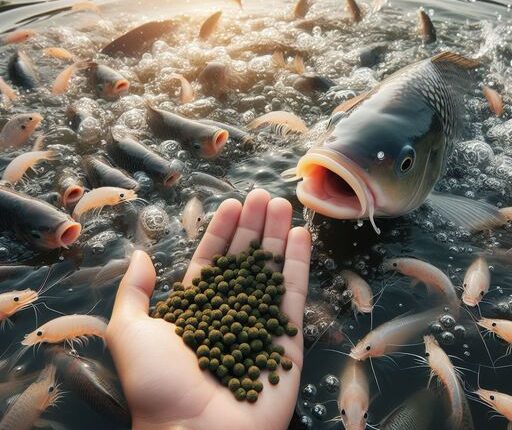FISH AND SHRIMP FEED AND NUTRITION IN AQUACULTURE: KEYS TO HEALTHY, SUSTAINABLE GROWTH
Aquaculture has grown significantly in recent decades, and the production of fish in controlled environments has become a vital source of food supply worldwide. Proper feeding and optimal nutrition are essential to ensure the well-being and healthy growth of aquacultured fish and shrimp. In this article, we will explore the importance of diet and nutrition in aquaculture, as well as essential practices to promote successful and sustainable fish and shrimp production.
1) Knowing the nutritional requirements of fish and shrimp
Each species of fish and shrimp has specific nutritional requirements, and understanding these differences is essential to providing adequate nutrition. These aquatic animals at different stages of their life cycle, such as juveniles or adults, require varying levels of proteins, lipids, carbohydrates, vitamins and minerals. Understanding these requirements is the first step in formulating personalised, balanced diets that meet the nutritional needs of fish and shrimp.
2) Formulating a suitable daily diet
Formulating specialised, species-appropriate diets for these aquacultured aquatic animals is essential for optimal growth. The ingredients used must be of high quality and contain the nutrients needed to support health, the immune system and resistance to disease. In addition, factors such as palatability and digestibility must be taken into account to avoid feed wastage and maximise nutrient absorption.
3) A balanced, controlled diet
A balanced and controlled diet is essential to avoid problems such as over- or under-feeding. Overfeeding can lead to water contamination and waste accumulation, while underfeeding is detrimental to the growth and health of fish and shrimp. Monitoring feed consumption allows the amount of feed offered to be adjusted according to the needs of the fish and shrimp, promoting healthy growth and greater efficiency in aquaculture.
4) Sustainability and feed sources
Sustainability is a key factor in aquaculture, and this extends to fish and shrimp feed. It is essential to consider the feed sources used and their impact on the environment. Increasingly, diets using sustainable ingredients, such as certified fishmeal, or plant proteins that reduce reliance on limited resources and minimise pressure on wild fish populations.
5) Conclusion
In aquaculture, proper feeding and nutrition of fish and shrimp is essential for successful production and long-term sustainability. Knowing the nutritional requirements of different species, formulating specialised diets, providing a balanced and controlled diet, and adopting sustainable feed sources are key practices to ensure healthy and optimal growth in the aquaculture industry. In doing so, not only are we ensuring the well-being of fish and shrimp, but we are also helping to responsibly meet the growing global demand for fish products that are overexploited to satisfy human needs.

